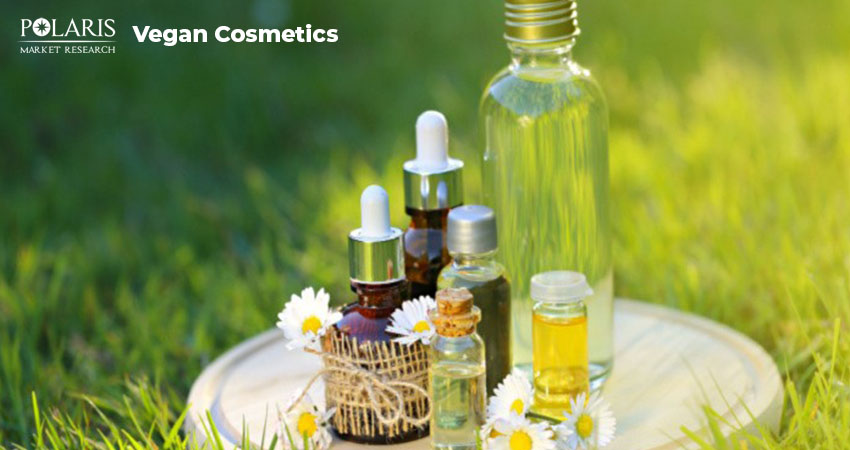Why Vegan Cosmetics Are Better for Your Skin and the Planet?
In the past decade, there has been a real boom in environmentally sustainable products across several sectors worldwide. And the cosmetics industry is no exception. The world of cosmetics has seen the advent of sustainable and organic cosmetics characterized by their presence of natural ingredients sourced from organic farming. Vegan cosmetics are also highly successful among individuals worldwide.
But what exactly are vegan cosmetics? And how do they differ from the traditional cosmetic products available on the market? In this blog post, we take you to the realm of vegan cosmetics, shedding light on their basics, common ingredients, and benefits. Also, we detail the top companies offering vegan cosmetic products to cater to consumer needs and meet sustainability goals.
What Exactly Are Vegan Cosmetics?
In essence, vegan cosmetics are cosmetic products that don’t contain any animal-derived ingredients or byproducts. This means they are free from any component that comes from animals, including collagen, cholesterin, gelatine, milk, honey, and beeswax. The term “vegan” isn’t regulated by law and is typically used when products don’t have any animal-derived substances. Often, brands have certifications to confirm that their products are actually vegan.

Common Vegan Ingredients for Cosmetics
When looking for vegan cosmetics, buyers must look for the following key ingredients:
Algae: Algae is a group of predominantly aquatic and nucleus-bearing organisms that don’t have true roots, stems, leaves, and other specialized multicellular reproductive structures of plants. Both algae and microalgae are rich in antioxidants and known for their anti-inflammatory properties.
Bakuchiol: Bakuchiol is a natural extract from the leaves and seeds of the corylifolia plant. As a retinol alternative, bakuchiol can help firm the skin and reduce wrinkles. Also, it can help reduce skin discoloration from environmental exposure.
BHA (Beta-Hydroxy Acid): BHA is a type of acid that’s found in fruits, plants, and tree bark. As a chemical exfoliant, it helps unclog pores and remove bacteria, dirt, and excess sebum. BHA is a common ingredient in several cosmetic products, especially those that treat acne.
Niacinamide: Niacinamide is a form of vitamin B that’s found in several foods, including green vegetables and cereals. It supports several aspects of health. Niacinamide can help individuals get brighter, younger-looking skin.
Retinol: Retinol, also known as vitamin A, is a fat-soluble vitamin that has several uses. It’s a popular ingredient in cosmetics that can help with acne, aging, and other skin conditions. Retinol works by increasing collagen production, which helps the skin look firm and more elastic.
Vegetable Glycerin: Vegetable glycerin, also known as glycerol, is a clear, sweet-tasting liquid obtained from plant oils such as coconut, soybean, or palm. It is a popular ingredient in vegan cosmetics as it can soften and lubricate the skin.
Benefits of Using Vegan Cosmetics
There are several reasons why individuals are opting for vegan makeup. These include:
Gentle on the Skin: Vegan cosmetics are made from natural ingredients that work with the skin, not against it. This makes them ideal for individuals having sensitive skin or irritating skin conditions such as rosacea.
Eco-friendliness: Vegan cosmetics are a conscious choice taken towards protecting the environment. By opting for vegan makeup, individuals can rest assured that they are taking an additional step towards supporting animal welfare.
Gluten-Free: Most vegan makeups on the market are also gluten-free. This is helpful for individuals who have celiac disease or other inflammatory health conditions.
Highly Effective: The anti-acne cosmetics market and the overall cosmetic industry are known for their innovation. The leading players source ingredients that are just as high-performing as their traditional counterparts.
Who Makes Vegan Cosmetics?
The market for vegan cosmetics is intensely competitive. It has the presence of both regional and international brands striving for product differentiation. Below, we’ve detailed the top companies that make vegan cosmetic products:
Gabriel Cosmetics
Gabriel Cosmetics is a popular cosmetics brand that prides itself in developing clean and results driven beauty products. The brand’s product portfolio includes cleansers and tonics, masks, specialty, sun care, and bath & body. Gabriel Cosmetics also offers vegan cosmetic products for combination, overactive, or dehydrated skin types.
Organic Harvest
Organic Harvest is an all-organic brand with an extensive portfolio of skincare, bodycare, and haircare products. All the brand’s products are made from plants cultivated without the use of herbicides, pesticides, and hazardous fertilizers. As such, they don’t include any traces of harsh chemicals, mineral oils, paraffin, or any other animal ingredients. Along with its existing portfolio, the brand keeps launching new products to cater to the evolving consumer needs. For instance, in October 2023, Organic Harvest entered the color cosmetics sector with the launch of its 100% vegan makeup collection.
Plum
Plum is a 100% vegan beauty brand that offers cruelty-free makeup, haircare, skincare, and bodycare products. Being completely vegan, the brand doesn’t use animal ingredients in any of its products. Also, Plum uses only well-researched active ingredients and has its own recycling program. Plum’s makeup range includes kajal, face primer, concealer, eyeshadow sticks, eyeliners, and lipsticks, amongst others.
Coty
Coty is a US-based beauty company that specializes in the manufacturing, marketing, and distribution of fragrances, cosmetics, skincare, and haircare products. Currently, the company owns dozens of popular brands, including the likes of Escada, Gucci, Acoste, Max Factor, and Wella, amongst others. In product development, Coty focuses its R&D efforts to leverage the best of what nature and science provide.
Besides these, other leading companies offering vegan cosmetic products are Natur'Alley Ltd. (the UK), Nutriglow Cosmetics (India), Disguise Cosmetics (India), G&M Cosmetics (Australia), and GoNature Sp. z o.o. (Poland).
Driving Sustanaibility
To conclude, vegan cosmetics have long been associated with simplicity and inferiority. Some individuals may have the notion that vegan cosmetics aren’t as effective and functional as their traditional counterparts. However, the leading players in cosmetics have disapproved of these theories by introducing products that have gained traction among consumers worldwide.


